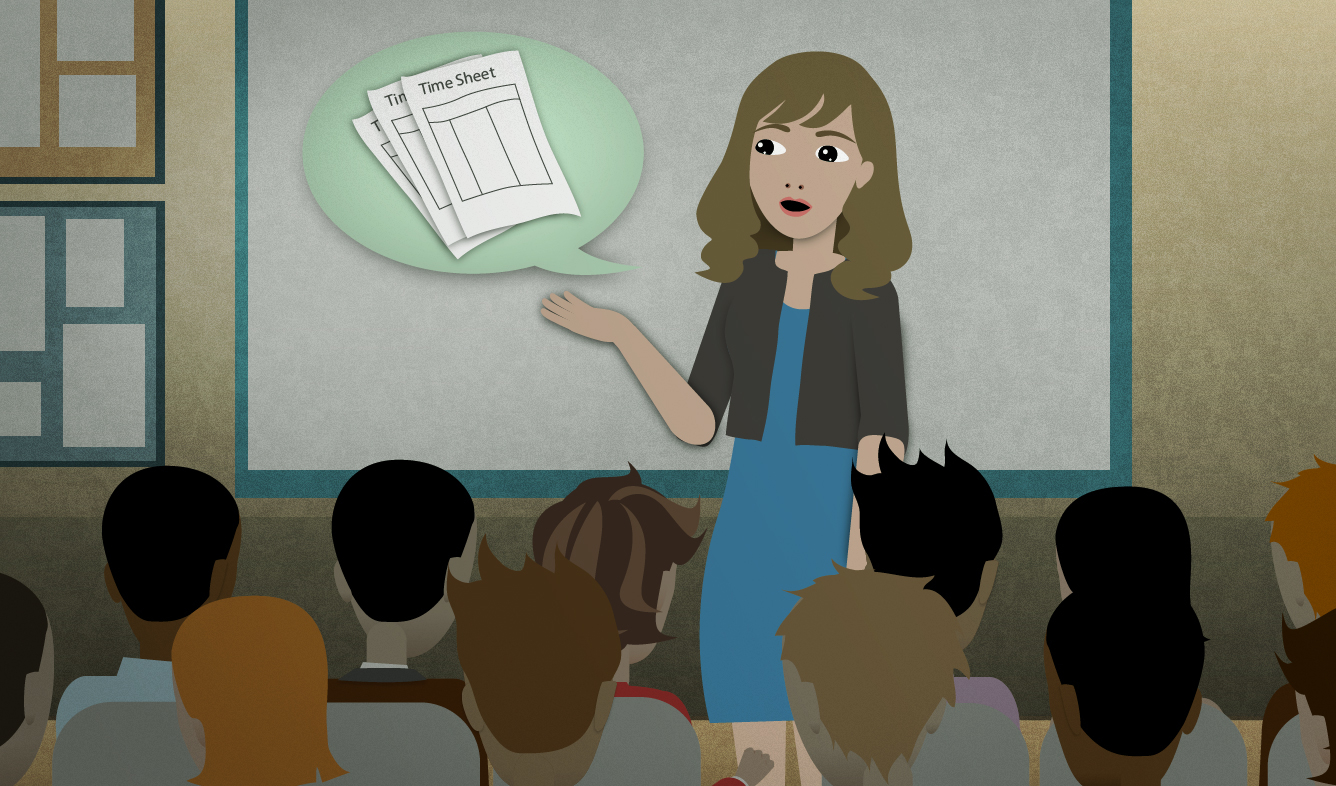“Before we get started, I wanted to remind everyone that your time sheets are due to Amy by the end of this week.”
You're in charge of a meeting at work. There's one announcement that you need to make at the beginning. You remind everyone about something that they're supposed to do.
Before we get started, I wanted to remind everyone that your time sheets are due to Amy by the end of this week.
Want Video and Sound? Follow us on YouTube

I wanted to remind you that (clause)
This is a polite and gentle way to remind someone of something they were supposed to do. (To "remind" someone means to say something to help them remember.)
"I wanted to (do something)" is a polite way to start any question when you need to ask but you don't feel that confident about it.
For example, if you want to invite someone to hang out with you, you can call them and after a few sentences of small talk you can say:
I just wanted to see if you're free on Thursday night. I'm going to this art show with a few friends of mine.
People use "I wanted to remind you that..." in business situations pretty often. It's more common in spoken English than in writing.
I wanted to (do something)
A very polite way to explain why you're doing something is "I wanted to ___". For example:
Hi Jen. I wanted to see if you'd like to come out with Emma and I and some friends of ours to a show next week.
Yes, I just wanted to verify that my payment has been received?
Some phrases that can be used after "wanted" include:
I wanted to ask...
I wanted to tell you...
I wanted to check to see if...
I wanted to remind you that...
I wanted to let you know that...
I wanted to find out whether...
Note that this is in past tense: you say "I wanted to ___" instead of "I want to ___". There's no grammatical reason for making it past tense; it just makes your sentence sound more polite. When you say it this way, it sounds like an explanation for why you're calling, why you're visiting, etc.
(something) is due
The time when an assignment, project, or application "is due" is the time that it must be finished by. The idea is very similar to a deadline. However, "deadline" is a noun and "due" is an adjective.
You can tell what the time something is "due" is by saying:
- due on (a day)
I think it's due on the 23rd.
- due by (a time)
It was due by midnight last night.
- due (next ___/last ___)
Your application is due next Tuesday.
Before we get started...
You can hear this English expression in a meeting. If there are announcements to make, people to introduce, or other things to talk about before the main topic of the meeting, someone will say "Before we get started...":
Before we get started, I wanted to introduce everyone to a new member of our team. This is Hyejin Lee.
The host of a TV or radio talk show sometimes uses this expression as well.
time sheets
A "time sheet" is a form that you fill out in order to get paid for hourly work or overtime.
I have to submit a time sheet by the tenth of each month.
